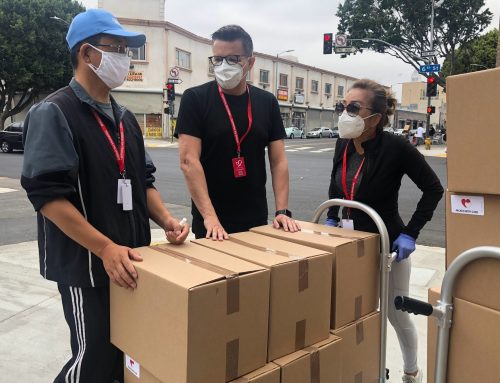With the UK currently in the midst of Lockdown 2.0, we though it would be helpful to many of our customers and readers if we revisited our working from home tips to produce a version 2, with some more, hopefully helpful, tips to keep you energised, motivated and productive during the latest lockdown.
Set manageable and achievable daily goals
Planning what you’re looking to achieve each day is a major step towards productive homeworking. Make a list of small achievable objectives before you start working, using either a notepad or an online task management portal, and tick them off as you go. Not only does this help you to remember, prioritise and keep track of your work, and promotes healthy working practices such as accountability and organisation, it has a positive effect on your mental wellbeing – your brain just loves to see things ticked off a list.
Interestingly, your brain prioritises pressing tasks that you need to do, over things you have done, creating a tension which can only be resolved by completing the task. This is known as the “Zeigarnik effect”, and harnessing it can be a useful step to preventing COVID-19 homeworking procrastination. Having a ticked-off list of things you’ve done today, aside from giving you a good feeling, gives you a quick reference if you’re asked for a report from your boss.
Reflect and evaluate at the end of the day
Another benefit of making lists and ticking off tasks is that it gives you a measure of your daily productivity. Rather than simply sitting at your desk between 9am and 5pm and calling that a working day, what have you used that time for? Did you get everything done today that you set out to do? If not, was there anything you can do to improve your results tomorrow? Are there any changes that you could make to your collaborative homeworking practices with your colleagues? Can you be more productive by working non-standard working hours, i.e. do you feel more energised outside of standard office hours, and can you manage your workday to maximise this?
Understanding your own strengths and limitations, as well as those of colleagues you’re collaborating with, and the constraints of working away from the office, are key to maximising the results you’re able to generate.
Set up effective communication channels
Enforced isolation can be a lonely, and can also severely hamper communication efforts, slow down decision-making processes and create confusion – if not effectively managed.
Firstly, it’s important to maintain the “social” aspect of work – use group chats, emails, video calls etc to share news, provide updates and stay in touch with your colleagues. Not only will it help you work more effectively, it will help stop you from feeling cut off – particularly if you live alone.
There are now a multitude of software solutions available to enable remote teamwork and collaboration, from video calling software like Zoom, chat apps like WhatsApp, project management portals like Monday and Trello, all of which can be used without sophisticated hardware; as long as you have a smartphone and / or laptop, and an internet connection, you’re good to go.
Since you’re no longer able to simply shout across the office for updates, project management portals have a key role to play in ensuring everyone is aware of their individual responsibilities, duplication of work is avoided, and it’s clear where and with whom a task currently sits. Not only is this great for personal accountability, it helps promote continuity and allow rapid response even when teams are distributed across multiple locations.
Set boundaries for those you live with
If you’re living with housemates, significant others, children, even pets, it’s important to establish boundaries early in order to foster a productive working environment. Ideally, you’ll be able to secure a quiet room to allow you to concentrate, take phone calls and so on, without interruptions. Agree on noise levels, a “closed / open door” policy which indicates if you’re available to chat or are on Do Not Disturb status, and decide how household and childcare duties will be split in order to allow everyone to work effectively, take breaks, and keep the household running. It’s almost an extension of splitting up project tasks with your work colleagues!
Remember to look after yourself
Make sure that you make time to eat properly, rehydrate, walk around, exercise, and take breaks to refresh and refocus. Looking after your mental health and physical well-being is critical in the current situation, so don’t sell yourself short on breaks. It’s an easy trap to fall into – when working from home, many workers have admitted to feeling pressurised to demonstrate they were contributing; working longer hours, being more responsive on email and overall going to greater lengths to “prove” they were working.
Effective use of project management portals can help avoid this pressure – rather than sending emails of higher quantity or greater-than-necessary detail, workers can provide tangible, worthwhile updates which actually serve to accomplish something, rather than creating distractions simply to be “seen to be working”.
The Collect Group are committed to supporting UK small business throughout the COVID-19 lockdown, whether it be by continuing to collect and deliver your orders safely to your customers, or providing useful information and advice to keep you going.





